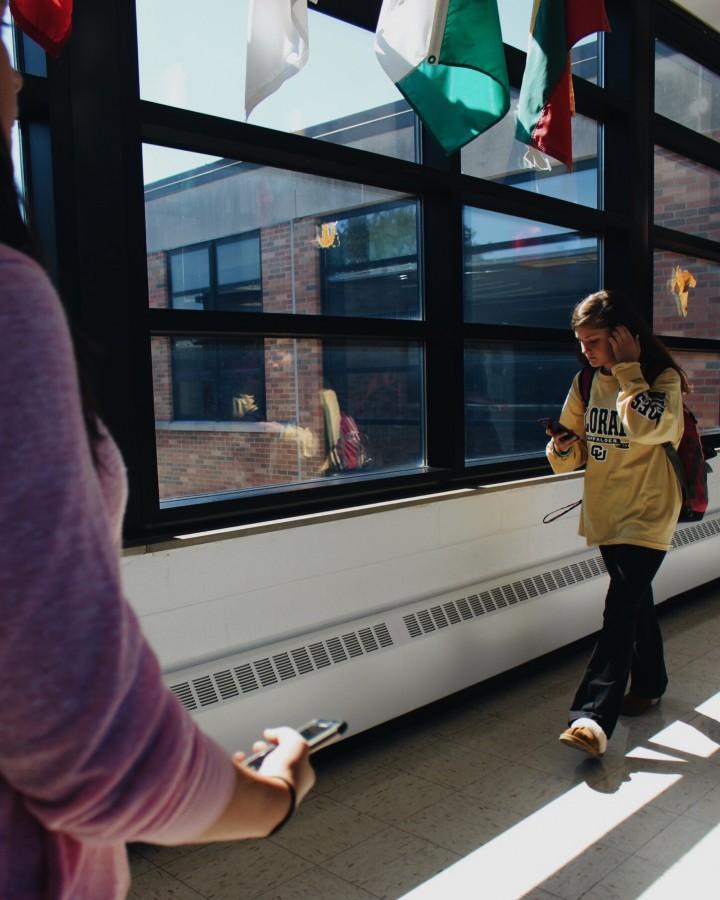Distractions distractions
Many students immediately turn to their cell phones during passing period depending on whether their next teacher has strict technology rules in place.
In the modern age of technology, students and teachers in District 86 are looking to find a compromise regarding cell phones usage during school hours. Teachers are allowed to determine their own regulations in their classroom according to the district’s policy, creating a complicated system of varying policies for students to attempt to weave through.
Each teacher has a different policy when it comes to cell phone usage during school, falling somewhere on a spectrum of strict to lenient. On one side of the spectrum, teachers require students to have their phone completely off in class. Mr. Chris Freiler, an AP Euro teacher, is one teacher who imposes these rules.
“Students are not allowed to have their cell phones out or using them unless they ask permission because there is something educationally related that they can use it for,” Freiler said. “If it goes off in class, that is an automatic dean’s referral which is a Saturday suspension.”
Students sometimes do not understand a rigid policy because they don’t see the logic behind a strict regulation on devices that are a part of their daily life.
“We live in a culture of distraction. I see the major impediment to student learning is not a lack of access to technology, it is a lack of focus,” Freiler said. “I feel when we are together in class we are a community of learning and we’re really focused on what we are doing.”
Ms. Tomas, a math teacher, however, allows students to use their phones as needed, whether that means it is on their desk, or the volume is on in their backpack.
“Students need to learn how to use their phones. When students are going to college, they can’t be using their phones or texting their friends during a lecture because they won’t understand what’s going on in the class,” Tomas said.
This alternating gridwork of rules can leave a student confused, but the situation is understandable in the classroom, even in a student’s perspective. Students recognize the impending distraction that is present in using a cell phone.
“I think during classes, there should be a fair amount of restrictions because students need to be able to focus in class and the teacher should say whether students can use their phones or not in class,” said Alex Choi, sophomore.
Both teachers can recognize the educational benefits of cell phones in the classroom, whether that is to find a document on the google sites, take a picture of the homework, or use the Internet for research. Both teachers have found success in their individual methods for regulating cell phones and plan to continue with their policies.
Each student must be aware before they text or else they could end up with a dean’s referral for a single buzz.














